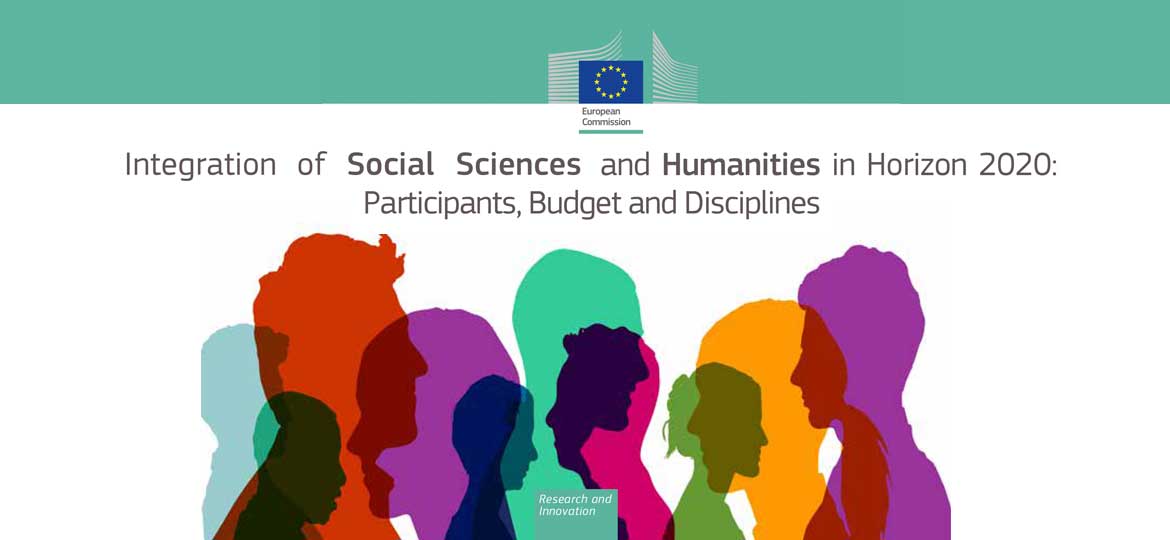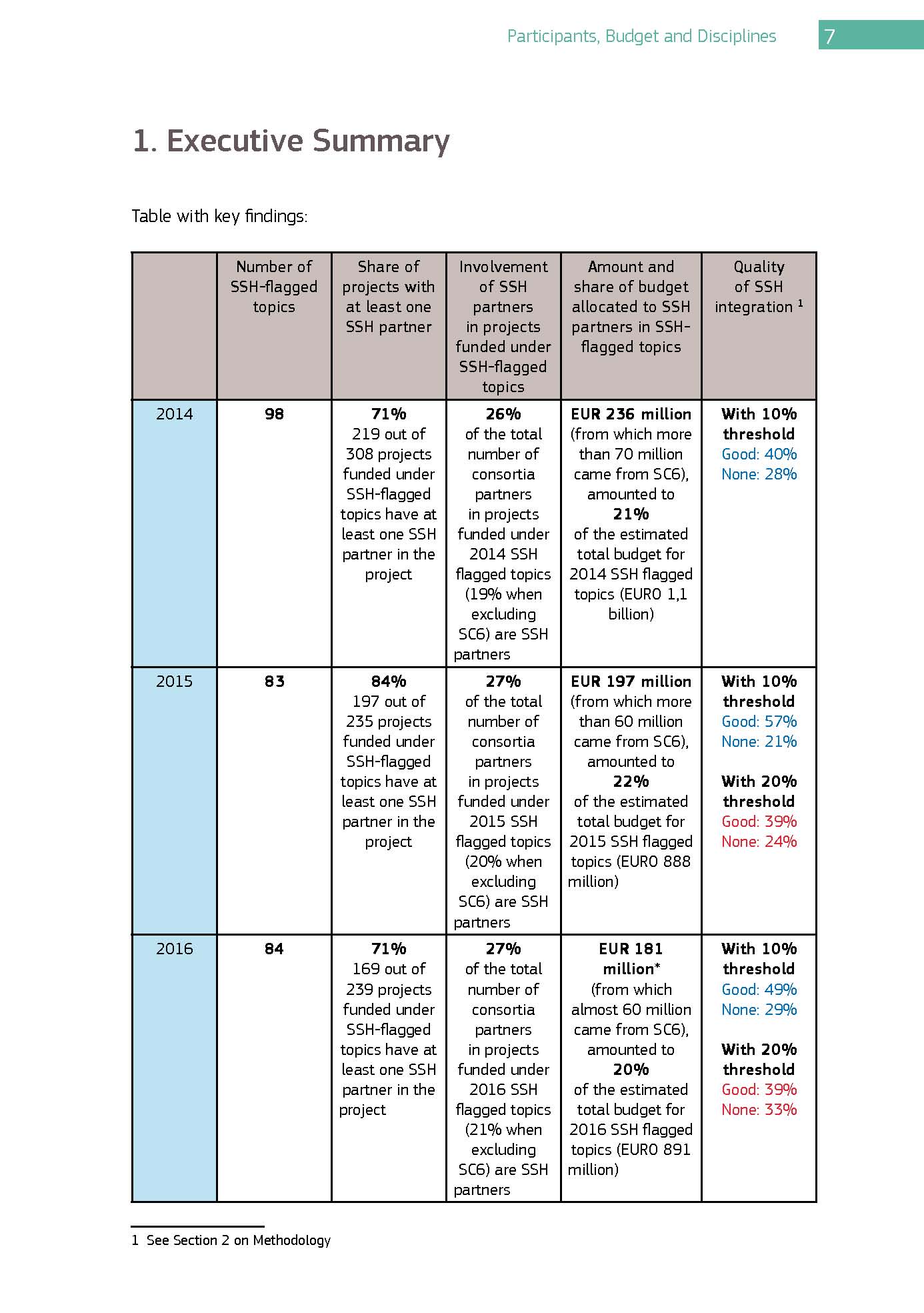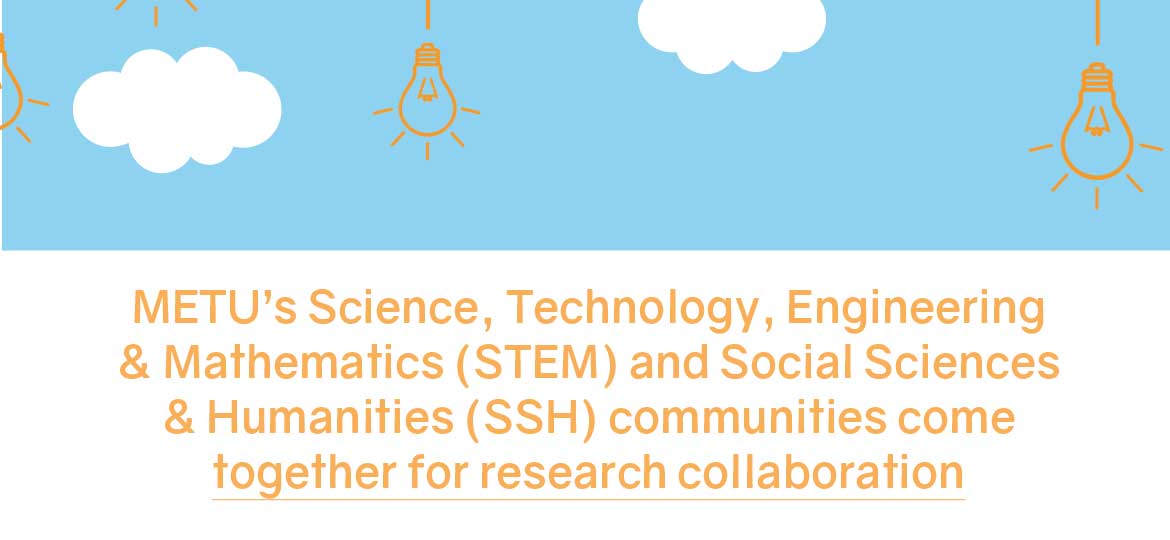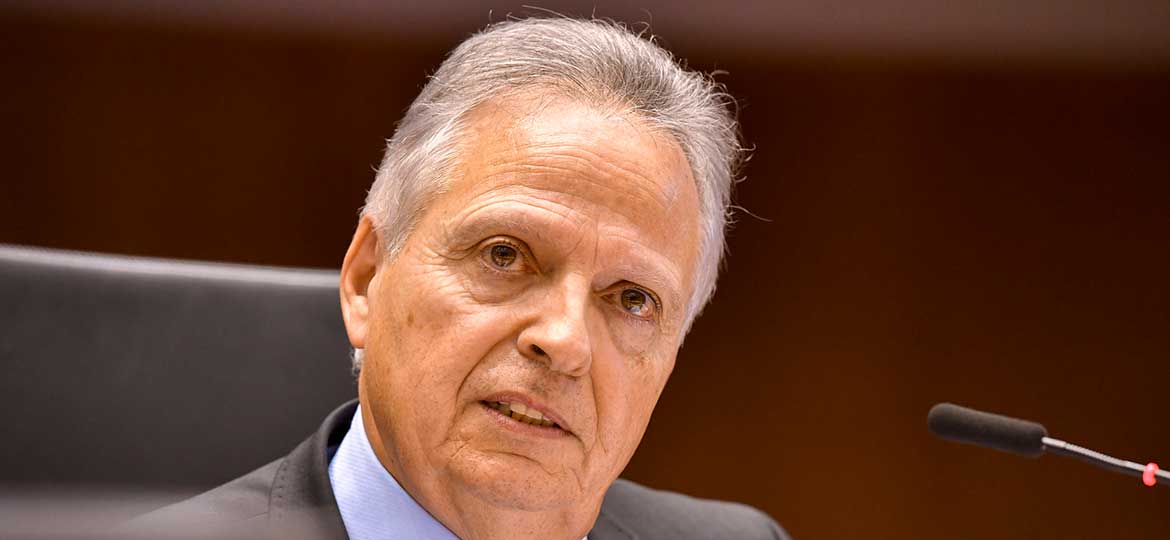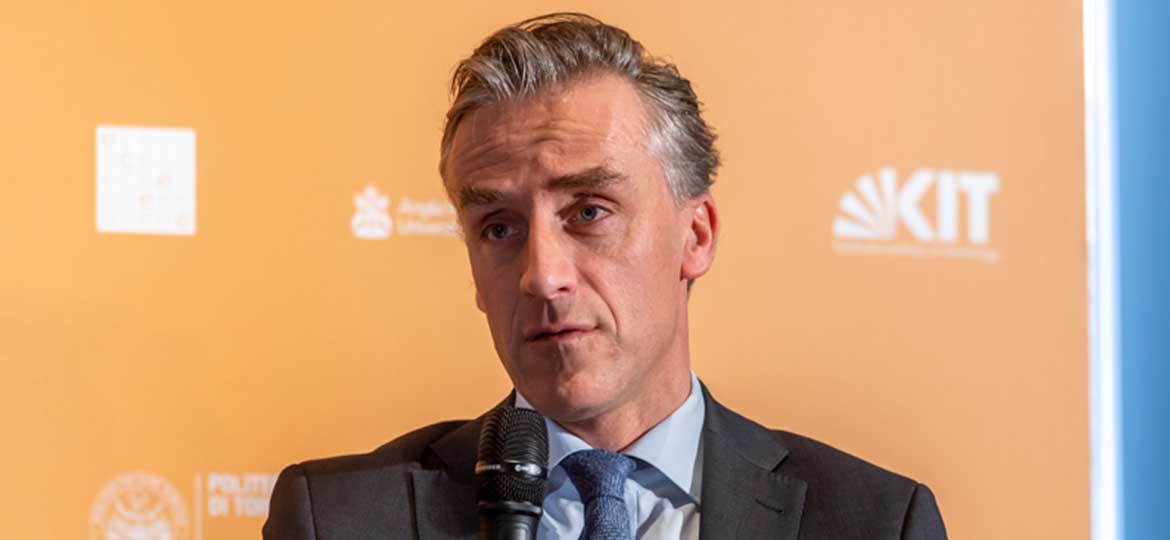The 3rd monitoring report on the integration of Social Sciences and Humanities (SSH) into H2020 projects in 2016 has been published by the European Commission, Directorate-General for Research and Innovation. These reports assess how the different SSH disciplines have been integrated into the projects funded under the various Societal Challenges and Industrial Leadership priorities since 2014. A novelty in this year’s report is that some key data on SSH in the calls of the European Research Council in 2016 have been included and that is the first covering the second Strategic Programme of 2016-17, as the explicit energy-SSH calls were launched from 2016 onward.
The 2016 picture is mixed. By some of the EC’s measures, the quantitative integration of SSH into H2020 projects has decreased compared to 2015 however there are also some positive trends. Within the Energy Work Programme (Societal Challenge 3) there has been a slight increase in the small proportion of budget going to SSH partners (4% in 2016 vs 2% in 2015), however fewer of the ‘SSH-flagged’ energy projects (those which the EC sees as needing SSH involvement) have SSH partners, indeed 59% of the SSH-flagged SC3 projects are reported to have no SSH partners.
Across H2020 the share of budget going to SSH partners under SSH-flagged topics has seen a slight decrease (20% in 2016 vs 22% in 2015). However, when considering ALL projects, the share going to SSH partners has increased from 5% to 7%.
To recall, in H2020 the European Commission follows a twofold approach on SSH: (1) a specific societal challenge (‘Inclusive, Innovative and Reflective Societies’, SC6) where topics are predominantly SSH-centred and, (2) the integration (or ‘mainstreaming’) of SSH research across other societal challenges (including ‘Secure, Clean and Efficient Energy’, SC3) whereby certain topics are flagged as benefitting from SSH expertise.
Access the full report here.

